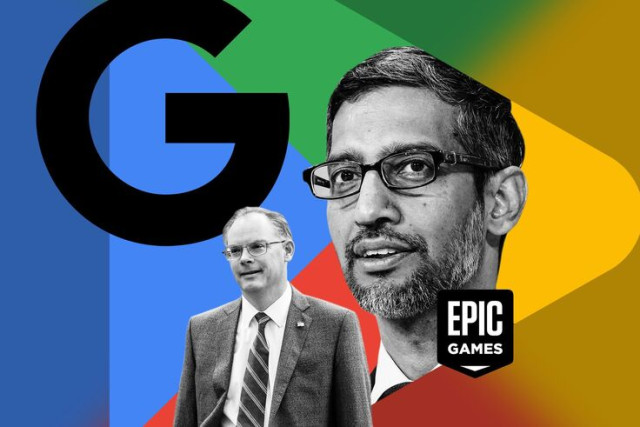In the aftermath of a court ruling declaring Google’s actions on its Play Store as anti-competitive, the tech giant is now contesting the proposed remedies put forth by Epic Games, the creator of Fortnite, TechCrunch report.
This development follows a jury's decision late last year, which determined that Google had engaged in anticompetitive practices on its app distribution platform.
Epic Games, in response to the ruling, presented a comprehensive list of demands aimed at restructuring Google's behaviour.
Among these demands were requests for unrestricted access to the Play Store catalogue of the app and game titles for six years, the ability to distribute its own app store on Google Play without facing fees, and the cessation of agreements and penalties favouring Google's platforms over rivals.
Google's unexpected defeat in the courtroom marked a significant milestone, especially considering Epic Games’ earlier loss in a similar antitrust case against Apple.
While the court in the Epic-Apple lawsuit ruled that Apple was not a monopolist, it did acknowledge the rights of developers to guide customers to alternative payment methods through the web.
This decision, which reached the Supreme Court and was upheld, set a precedent for app store regulations.
Although the jury in Google's case found evidence of the company leveraging its market dominance unlawfully, it's now up to Judge James Donato to determine the subsequent actions.
Both Google's counter-filing and Epic Games’ proposals will shape the forthcoming hearing scheduled for May 23, where the judge will deliberate on measures to curtail Google's power.
Epic Games outlined its demands in an April injunction, primarily advocating for users' freedom to download apps from various sources and for Google to refrain from influencing original equipment manufacturers (OEMs) or carriers to prioritize Google Play.
Additionally, Epic seeks to abolish additional fees related to bypassing the Play Store, which it deems anticompetitive.
Google, in its rebuttal, characterized Epic's demands as excessive and unnecessary.
Wilson White, Google's Vice President of Government Affairs & Public Policy, emphasized concerns regarding consumer privacy, security, and overall user experience.
White highlighted Google's previous settlement with state attorneys general as evidence of the company's commitment to a sustainable business model that fosters innovation while prioritizing user safety.
In its defence against Epic's demands, Google underscored potential risks to user security and privacy, particularly regarding the implementation of trust and safety measures in third-party app stores.
Additionally, Google argued that Epic's proposal could jeopardize users' privacy by requiring the disclosure of installed apps without their consent, potentially compromising sensitive information.
Furthermore, Google contended that Epic's proposed remedies were redundant in light of its prior settlement with state attorneys general.
The company asserted that Epic's demands could impede collaboration with developers and limit opportunities for exclusive content on the Play Store, ultimately diminishing competition.
The impending decision by Judge James Donato will not only determine the outcome of this case but also establish precedents for regulating app store monopolies.
As similar legal battles unfold, including the ongoing Justice Department cases against Apple and Google, the tech industry awaits clarity on the extent of regulatory oversight in the absence of comprehensive legislation addressing tech monopolies.




















